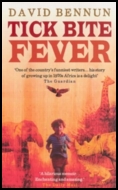| Text to separate 1 |  | Text to separate |  |
| Text to separate 1 | Tick Bite Fever | Text to separate | British As A Second Language |
|
Available now from Ebury Press:
British As A Second Language More details here Click here to buy it Also published by Ebury: Dave's highly acclaimed African memoir Tick Bite Fever |
| Eminem/ DJ Shadow [The Mail On Sunday, 2002] EMINEM THE EMINEM SHOW Aftermath ***** DJ SHADOW THE PRIVATE PRESS Mo'Wax ***** THIS MONDAY, while the more agitable portion of the citizenry was spluttering indignantly into its cornflakes at the prospect of a new Eminem album, I found myself choking on my own breakfast at an item on the morning news. The British record industry has called upon the government to set up a “music embassy” in New York, to revive the sales of British pop in the American market. These have slumped from a 32% share in 1986 to - and this is not a misprint - 0.2% today. In April, not one UK single featured in the US top 100, for the first time since October 1963. Think about that date for a minute. It confirms what I've long suspected: that British pop has reverted to its sickly, parochial condition of almost 40 years ago, before The Beatles arrived. Leaving aside the axiom that no good has ever come from state intervention in pop music, it's evident that the problem doesn't stem from a failure to assertively promote the product. The problem is the product: gutless cover versions or Tin Pan Alley dregs dribbled out by a sorry parade of grasping, fifth-rate no-marks propelled only by their indiscriminate craving for celebrity. The British record industry has nobody but itself to blame. Find, support and release some first-class, accessible music, you pusillanimous panderers, and maybe Americans will buy it. In the meantime, Americans will keep on buying American R&B and rap CDs, and so will we. Records which combine breathtaking creativity with razor-edged commercial acumen continue to stream out of the “urban” - read, black - American music scene. Nothing exemplifies this better than The Eminem Show, despite the circumstance of its author being white. The fact that Eminem is the only true rock'n'roll star in the world right now - a lightning rod for half the race, class and generational conflicts this side of Mesopotamia - has obscured another, significant fact: that he is an outstanding artist, one of the greatest rap MCs ever to draw breath and hurl it back out in a torrent of cusswords. To dismiss him for misogyny or homophobia is to miss the point. Eminem is a brilliant brat, a real-life version of South Park's Eric Cartman, undeservedly touched with genius by some mischief-bent monkey god. Why we expect the gifted to also be good is a mystery far more baffling than Eminem's refusal to hush up that potty mouth. The Eminem Show is not, as is widely supposed, the little chap's third album, but his fourth. When his forgotten first effort from 1996, Infinite, saw him dismissed as a black wannabe, he dispensed with standard rap mannerisms and instead developed a superior style based upon what he actually is; a very clever, very funny white kid with a knack for playing dumb. This brought him to the attention of Dr Dre, hip hop's most durable and reliably inventive producer, an authentic virtuoso. It was Eminem's standing as Dre's protˇgˇ which gained him acceptance in a genre previously ruined for white kids by the ludicrous and much loathed Vanilla Ice. Dre is now so grand that, like an Old Master, he has acolytes - a school of Dre - to produce work after his manner. That's how most of this album came about. And it's marvellous stuff, albeit thirty minutes too long, as are all urban albums. Those thirty minutes, including the attempted protest songs, Soldier and Square Dance, are stodgy and gauche. But the good bits are so very good that it really doesn't matter. At the core of it is Eminem's own personality, or personalities. He is lucid, embittered, cheery, insightful, glee-ridden, reflective, vile. One moment he puzzles over his apparent ability to channel the thoughts of millions. The next, he relishes his aptitude for outraging millions more. He is wildly inconsistent, swinging from defiance to apology, empathy to abuse. He is self-important, self-righteous, self-obsessed - but then, he does possess a very entertaining self. At this stage in their careers, most superstars have only their own fame to write about, which tends to fix their output somewhere between stale and flatulent. Eminem's fame is fascinating, and so makes for a fascinating record. Once more he picks over his public ructions with womenfolk: his mother, who “always told me, Godammit you little motherf****r, if you ain't got nuthin' nice to say then don't say nuthin'”; his ex-wife; his daughter Hailie Jade. “I don't blame you,” he confides in closing to all the worried parents of Eminem fans. “I wouldn't let Hailie listen to me neither.” The worried parents have got it wrong. They should be delighted if their offspring prefer Eminem's daring, inflammatory and frequently repulsive records to the sterile, stultifying uniformity of the alternative; the mummified Westlifes and pre-embalmed Pop Idols who signal such a pitiful deadening of the wits and of the senses. The message which shines through The Eminem Show is that Eminem is passionately dedicated to his art above all else; that he wants to push it, hone it, perfect it. Lofty ideals for a snotty Michigan pipsqueak, but he's living up - and down - to them. DJ Shadow is no less of a hip hop prodigy than Eminem; otherwise, all they have in common is skin colour and a love for the medium. Shadow's skill is to make new records from old. His graceful music, largely instrumental, is about texture, mood and suggestion. To call it Trip Hop is to sell short its scope and beauty. Shadow's 1996 debut album, Endtroducing, ranks among the finest records of the last decade. Only now has he followed it up. It could scarcely be hoped that The Private Press would match its predecessor, but it has. It is a gorgeously subtle and diverse album, every bit as bold in its own imperturbable way as Eminem's frenetic outpourings. Shadow towers over avant-garde hip hop, just as Eminem dominates the mainstream. The crux of the matter, which both men would probably appreciate, is that these two superb records are equally experimental, and equally enjoyable. Art, commerce; one will always perish without the other. Let's hope somebody in the British record industry is taking notes. All material on this site is copyrighted © to David Bennun and may not be reprinted or reused without permission. But hey - feel free to ask. Back to Music Reviews
Back to Pop |
| Text to separate 1 |  | Text to separate |  |
| Text to separate 1 | Tick Bite Fever | Text to separate | British As A Second Language |